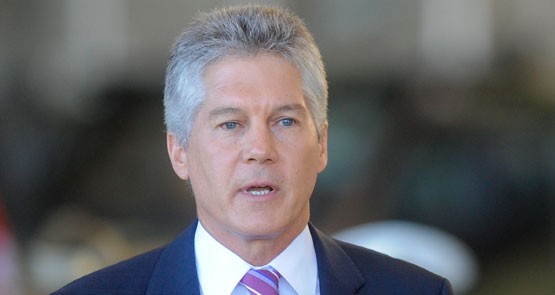
Western Australian state politics is being viewed with more than the usual degree of puzzlement this week, after Rudd-Gillard government minister Stephen Smith belly-flopped in his bid to seize the Labor leadership from Mark McGowan.
For the Canberra-centric observer, the question arises as to how Smith, with his reputation as a steady hand and formidable experience of politics, both as a party machine man and top-tier minister, was able to fail so comprehensively in such a short time.
Smith showed some awareness of his limited support base when he announced his intentions on Sunday, saying the party room could turn to him “at the time of their choosing”, which need not be “in the coming days or the coming weeks”.
It was anticipated that Smith’s dirty work would ultimately be done for him by a drumbeat of polls confirming the view that he could indeed turn the doubtful prospect of victory under McGowan into a near certainty.
The strategy drew on the long tradition of two-stage leadership challenges, in which an unconvincing victory for the incumbent in the first round sets them up for defeat in the second.
But for this to come off, Smith’s first strike at least had to draw enough blood to destabilise McGowan while reinforce his own image as a winner in the making.
What transpired instead was a rapid series of bruising defeats, with shadow cabinet declaring unanimous support for McGowan on Monday, the party organisation executing the preselection of a rival candidate for the seat Smith wished to contest later that evening, and a further unanimous vote in support of McGowan being carried on Tuesday, this time by a full meeting of caucus.
Despite all that unanimity, there has been no suggestion that Smith was making anything up when he claimed on Sunday to have been approached by numerous Labor MPs.
However, the list of suspects being circulated by media reports is notably short, representing six or seven out of the 31-member party room, and is dominated by members of the Right, most with ties to the Shop Distributive and Allied Employees’ Association (SDA).
One exception was Ken Travers of the Left, who is associated with the powerful United Voice union — perhaps encouraging Smith to believe that further United Voice support might be forthcoming.
However, the union’s parliamentary leadership was out in force for McGowan on Sunday, with upper house leader Sue Ellery accusing Smith of “trying to insert the kind of leadership destabilisation that he was a part of when he was in government at a federal level”.
Beyond crude questions of factionalism and union power, McGowan also enjoyed vocal support from the most influential members of the frontbench, as well as luminaries outside Parliament.
The latter included federal MP Alannah MacTiernan, former WA premier Geoff Gallop and even former opposition leader Kim Beazley, for whom Smith counted numbers during federal leadership contests in 2003 (both of which Beazley lost).
In the face of this barrage, the only putative Smith backer to put his head above the parapet was SDA faction operative Bill Johnston, who said the party should “consider every option”.
Johnston’s name can nonetheless be found alongside those of all his colleagues on a statement of “unanimous confidence in Mark McGowan as leader”, which called on Smith to “withdraw immediately”.
Smith’s surrender after yesterday’s caucus vote was unconditional, offering that he would “absolutely rule out challenging Mark McGowan as leader of the Labor Party between now and the next state election”.
That hasn’t appeased angry ALP members, who have reason to fear the outbreak of disunity will check the favourable momentum detected by the last Newspoll result.
However, it seems just as likely that Smith will prove to have inadvertently performed a good service for McGowan, who has spent two days basking in personal endorsements and capped it off with a major personal victory.








I thought it was a set piece to take the wind from any potential ‘real’ challengers. Maybe I am too cynical?